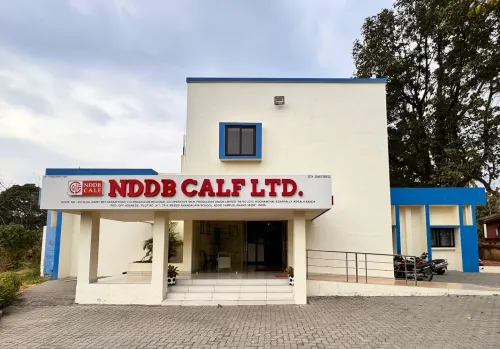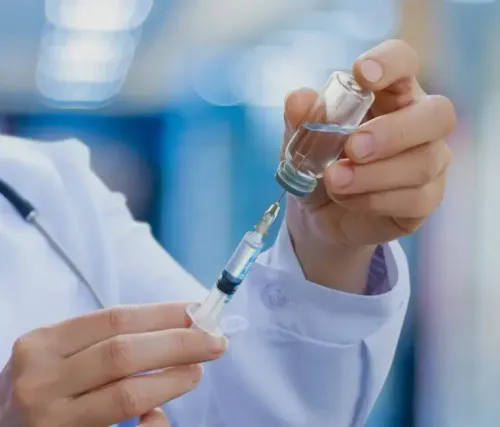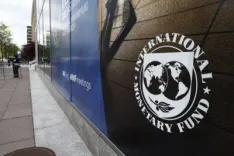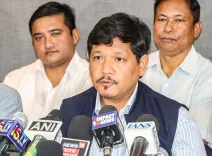Is India Ready to Lead Global Regulatory Cooperation in Herbal Medicines?
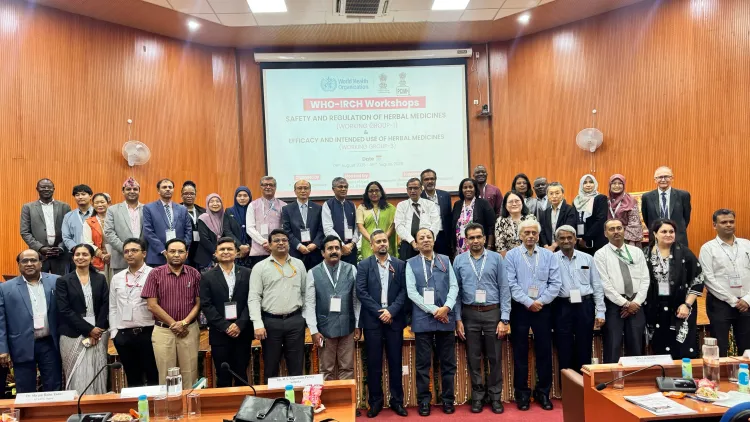
Synopsis
Key Takeaways
- India's leadership in global herbal medicine regulation.
- Introduction of Ayush Suraksha Portal for safety monitoring.
- Significant digital initiatives under Ayush Grid.
- International participation highlights collaborative efforts.
- Focus on standardization and quality control in herbal medicines.
New Delhi, Aug 9 (NationPress) India is dedicated to strengthening global regulatory collaboration in the herbal medicines sector, stated Vaidya Rajesh Kotecha, Secretary of the Ministry of Ayush.
During the opening session of a three-day workshop organized by the Ministry of Ayush at the WHO-International Regulatory Cooperation for Herbal Medicines (IRCH), he emphasized India's role as a pioneering force in WHO-IRCH Working Group 1, focusing on Safety and Regulation, and Working Group 3, which addresses Efficacy and Intended Use.
Kotecha also introduced significant digital projects under the Ayush Grid, such as the Ayush Suraksha Portal, designed for real-time monitoring of misleading advertisements and pharmacovigilance, along with e-Aushadhi, a comprehensive IT platform for the licensing of ASU&H medicines.
Participants from various countries including Bhutan, Brunei, Cuba, Ghana, Indonesia, Japan, Nepal, Paraguay, Poland, Sri Lanka, and Uganda attended the workshop in person, while delegations from Brazil and Egypt, along with the US, joined virtually.
The event included in-depth presentations from different nations covering safety, regulation, efficacy, and intended use of herbal remedies.
Expert discussions focused on the standardization and quality control of herbal medicines, regulatory case studies, best practices in pre-clinical research, unique circumstances in herbal medicine research, and the WHO's Traditional Medicine Strategy 2025–2034, including the registration of clinical trials and pharmacovigilance insights from both WHO and Ayush perspectives.
Workshops also covered the WHO Global Benchmark Tool for Herbal Medicines and case studies spotlighting the safety of Ashwagandha (Withania somnifera).
Practical laboratory training at the Pharmacopoeia Commission for Indian Medicine & Homoeopathy (PCIM&H) equipped participants with techniques for herbal drug standardization, including pharmacognostical identification and heavy/toxic metal analysis.
Field visits to the National Institute of Unani Medicine in Ghaziabad, herbal gardens, greenhouses, polyhouses, raw drug repositories, museums at PCIM&H, and the All India Institute of Ayurveda provided participants with valuable insights into India's integrative health systems.



